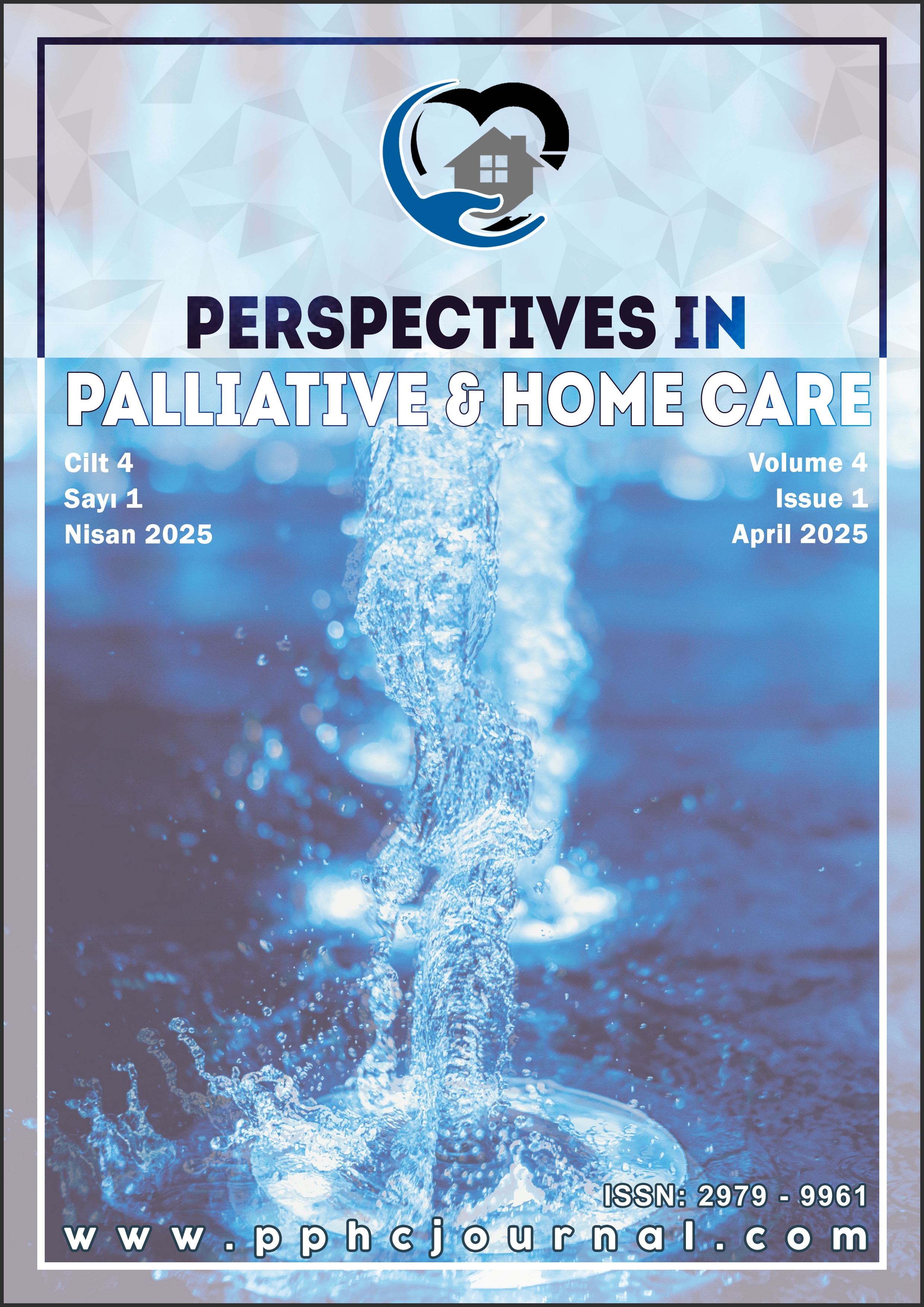Devlet ve Üniversite Hastanesinde Çalışan Hemşirelerin Manevi Destek Algıları: Karşılaştırmalı Bir Araştırma
Author :
Abstract
Giriş/Amaç: Farklı kurumlarda çalışan hemşireler tarafından verilen hemşirelik bakımı, çalışma koşulları, kurum özellikleri ve hasta popülasyonları açısından farklılık gösterebilir. Bu farklılıklar, sağlıklı/hasta bireylerin manevi bakımını ve değerlendirmesini etkileyebilmektedir. Bu çalışmanın amacı, bir devlet hastanesi ile bir üniversite hastanesinde çalışan hemşirelerin manevi destek algılarını araştırmak ve karşılaştırmaktır.
Gereç ve Yöntem: Tanımlayıcı ve kesitsel tipteki bu çalışma Nisan-Temmuz 2022 tarihleri arasında yapılmış olup örneklemini 217 hemşire oluşturmaktadır. Veriler bir bilgi formu ve Manevi Destek Algısı Ölçeği (MDAÖ) kullanılarak toplanmıştır.
Bulgular: Üniversite hastanesi hemşirelerinin (n:97) toplam puan ortalaması 50.06±6.31, devlet hastanesi hemşirelerinin (n:120) toplam puan ortalamasının 51.24±6.74 olduğu tespit edilmiştir. Yapılan analize göre iki kurumda çalışan hemşireler arasında manevi destek algısı ölçek puan ortalamaları açısından anlamlı bir fark gözlenmemiştir (p > 0.05).
Sonuç: Yapılan analizler sonucunda iki farklı kurumda çalışan hemşirelerin manevi bakım destek algılarının yüksek olduğu ancak aralarında anlamlılık olmadığı görülmüştür. Hemşirelere göre hastaların manevi destek ihtiyacı arttıkça hemşirelerin manevi destek algısının da arttığı sonucuna varılmıştır.
Keywords
Abstract
Background/Objective: Nursing care provided by nurses working in different institutions may differ in terms of working conditions, institutional characteristics and patient populations. These differences may affect the spiritual care and evaluation of healthy/patient individuals. The goal of the study was to explore and compare the perceptions of spiritual support among nurses employed at a state hospital and a university hospital.
Material and Methods: This descriptive and cross-sectional study was conducted between April and July 2022 and the sample consisted of 217 nurses. Data were gathered through the use of an information form and the Scale for Perception of Spiritual Support (SSPS).
Results: The mean total score of university hospital nurses (n:97) was 50.06±6.31, and the mean total score of state hospital nurses (n:120) was 51.24±6.74. According to the analysis, there was no significant difference observed in the mean scale for perception of spiritual support scores between nurses working in the two institutions (p > 0.05).
Conclusion: As a result of the analyses, it was observed that the perception of spiritual care of the nurses working in two different institutions was high, but there was no significance between them. It was concluded that as the patients' need for spiritual support increased according to the nurses, the nurses' perception of spiritual support also increased.





